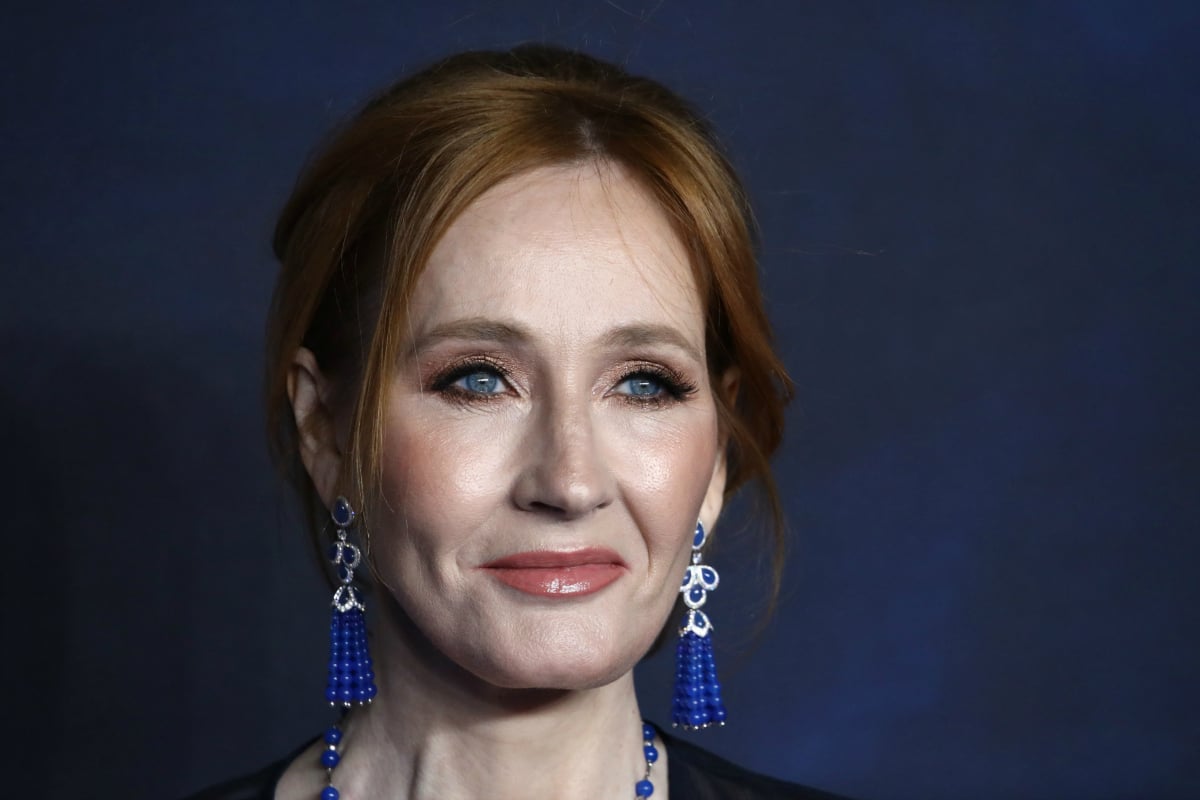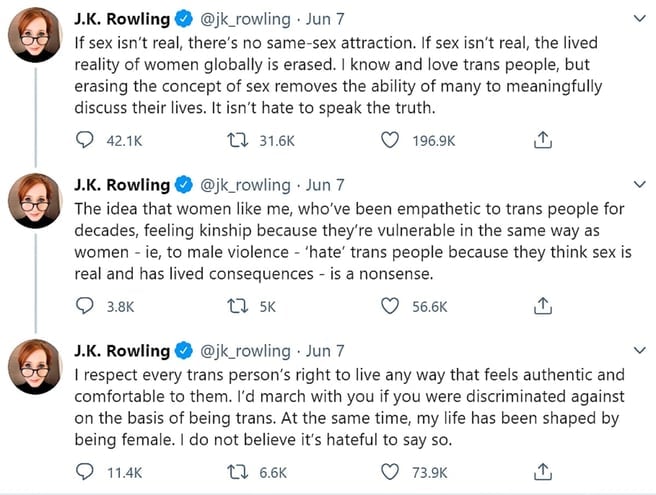
This post was originally published on June 9, 2020. It has since been updated with new details.
J.K. Rowling has compared hormone therapy to a "new kind of conversion therapy" for young gay people.
She also suggested that young people struggling with mental health issues are being "shunted" towards this kind of therapy "when it isn't in their best interests".
It's the second time in two months the Harry Potter author has faced criticism, after first voicing what some have called trans-phobic sentiments about periods, womanhood, and sex versus gender.
So how did we get here in the first place?
Let's start at the beginning.
J.K. Rowling's history of undermining trans identity.
Over the past three years, J.K. Rowling has left a trail of social media breadcrumbs, hinting at her stance on transgender identity.
In 2017, she hit the 'like' button on a tweet directing to a Medium article that claimed cisgender women are scared of sharing female-designated spaces with trans women. (Or, in the author's words, "Tell us again how we should willingly get changed next to a stranger with a penis while focusing on ensuring our fearful body language doesn’t make them feel uncomfortable.")





























































































